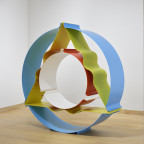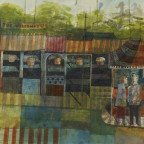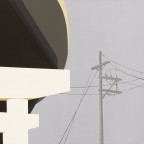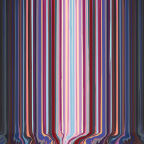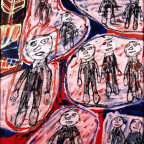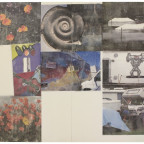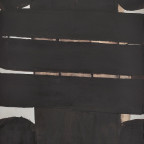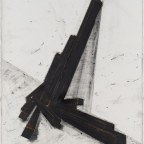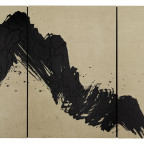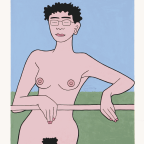Biography
Waddington Custot participates in the inaugural edition of Frieze Viewing Room, showcasing a range of works specifically selected to experience in the digital realm. Preview days takes place on 6 May from 10am EDT / 3pm BST and 7 May from 11am / 4pm BST. The public opening is from 8–15 May, starting at 11am BST / 4pm BST, closing on the 15 May at 7pm BST / 12am BST.
For a preview of our works at this fair, please see our new Viewing Room page.
This diverse presentation of artworks spans several decades, with pieces connecting through a multitude of points. A number of works on show trace an arc of the development of Pop Art, starting with Robert Rauschenberg, whose use of commercial imagery and mass produced objects are often cited as foreseeing the emergence of Pop Art in the 1960s, moving from American painter John Wesley, to renowned British Pop Artist Peter Blake, who was directly inspired by reproductions of Rauschenberg. American artist Allan D’Arcangelo is also included, often referred to as a seminal Pop artist and like his contemporaries found inspiration in the everyday, adopting advertising, popular icons, and familiar corporate symbols into his work. An artist of the subsequent generation, Michael Craig-Martin, references the bold shapes and vibrant colours of Pop Art, depicting recognisable, mass-produced objects.
In stark contrast to these works, we see pieces by Jean Dubuffet and Jean-Michel Basquiat, whose alienated graffiti-like figures are depicted in frenetic landscapes of colour. Removed altogether from symbols of consumer culture are artists whose attention focuses on process and form. Despite their differing aesthetics, the works of contemporary artists Ian Davenport and Fabienne Verdier, and paintings by modern master Pierre Soulages, centre on the application of paint, the concept behind this process and the pattern of the resulting outcome.
Similarly, form and shape are integral to sculptures by David Annesley, John Chamberlain and Bernar Venet, whose works balance industrial materials, including rolled and stainless steel, to create forms that appear weightless, with a sense of fluidity. These three-dimensional works interact with the spaces they inhabit, whilst also being fully self-contained.
继续





